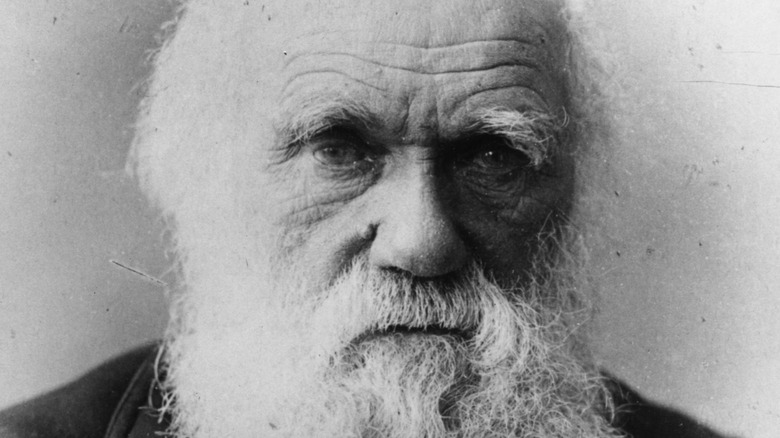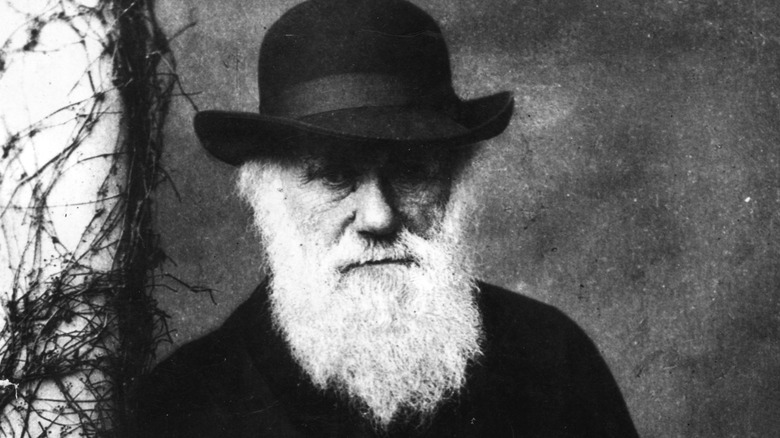The Tragic Death Of Charles Darwin's Toddler Son
Death was common in Charles Darwin's family lineage, per Scientific American, and his own life appeared trapped in the same tragic pattern. At just 8 years old, Darwin lost his mother. The inexplicable loss is believed to have shaped his anxious temperament later in life, which saw the researcher consumed by worry about the health of himself and his family.
Unfortunately for Darwin, his worries would become a reality on many occasions. His oldest daughter, Annie, died at age 10, and one of his children died at just 23 days old. While death is rarely predictable, the loss of Darwin's 18-month-old toddler son, Charles Waring, is notable for its tragic timing: The infant died of scarlet fever just two days before a planned presentation on the theory of evolution. Darwin attended his son's funeral in lieu of the presentation, although his theory would go on to change the course of scientific research.
Waring's death is less surprising in hindsight. The American Society of Hematology paints a picture of Waring as a child who likely had trisomy 21, also known as Down's syndrome. Although the child was not diagnosed at the time, he showed signs of ill health, and modern research has uncovered links between the genetic disease and immune system deficiencies, per Clinical and Experimental Immunology.
Death shaped Charles Darwin's outlook on life
Charles Darwin's experience with death is believed to have influenced his temperament, but it also appeared to shape his outlook on life and his drive to pursue his radical theory, which he knew would receive fierce pushback. Interestingly, it wasn't the death of Waring that likely set Darwin on the path to releasing his groundbreaking thesis. Per NPR, biographer Lyanda Haupt believed that the death of Annie was the spark for Darwin's renewed outlook on life. "He knew so deeply and so personally and viscerally what death was now after Annie's loss," she said.
Yet after this particular loss, Haupt noted, Darwin appeared content with the endless cycle of life and death and took a strange comfort in it. "There is grandeur in this view of life ... from so simple a beginning, endless forms most beautiful and most wonderful have been, and are being, evolved," he wrote at the end of "The Origin of Species."

